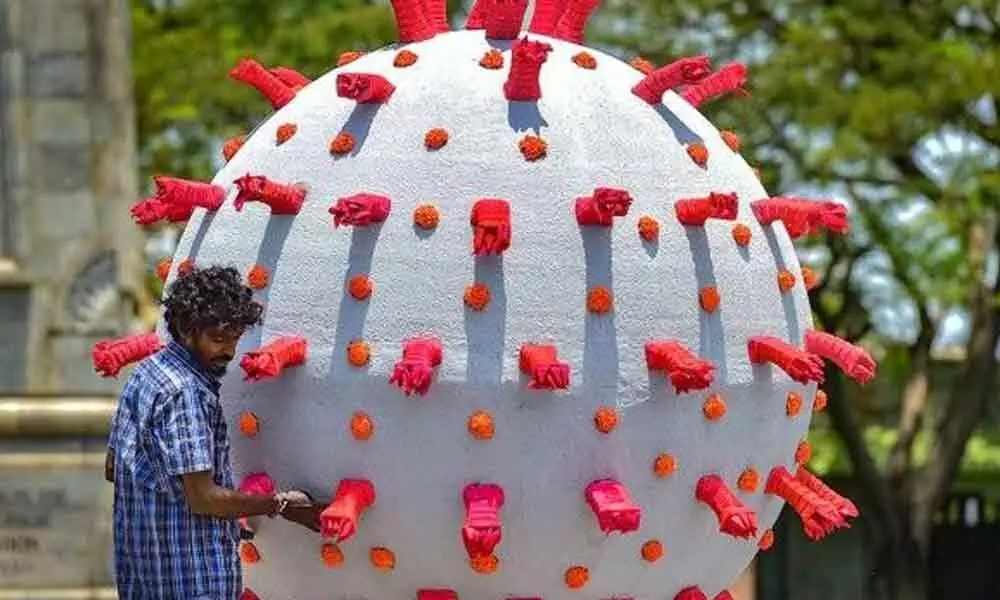Vaccine won't be enough to end pandemic: Experts

London: Johnson & Johnson's race to manufacture a billion doses of coronavirus vaccine is ramping up in a small biotechnology plant near Interstate 95 in Baltimore. But even as technicians prepare to lower 1,000-liter plastic bags of ingredients into steel tanks for brewing the first batches of experimental vaccine, international concern is bubbling about what countries will get the first inoculations.
The Baltimore plant is the second of four planned locations around the world where Johnson & Johnson plans to pump out vaccine on a massive scale, months before testing the first dose in a human being. The manufacturing head start is one part of a worldwide scramble to protect the human population from the virus that is not expected to vanish on its own. If SARS-CoV-2 establishes itself as a stubborn, endemic virus akin to influenza, medical experts say there almost certainly will not be enough vaccine for at least several years, even with the unprecedented effort to manufacture billions of doses. About 70% of the world's population - or 5.6 billion people - probably will need to be inoculated to begin to establish herd immunity and slow its spread, scientists say.
Yet the nationalistic priorities of individual nations could thwart the strategic imperative to tamp down hotspots wherever they are on the planet - including poor countries that can't afford the vaccine. The United States in particular could be left in the cold if vaccines developed here as part of a go-it-alone approach turn out to be less effective than those produced in China or Europe.
The scenario public health experts fear most is a worldwide fight in which manufacturers sell only to the highest bidders, rich countries try to buy up the supplies, and nations where manufacturers are located hoard vaccines for their own citizens.
"The model of countries thinking only of themselves is not going to work. Even if you're living somewhere that's somehow perfectly without any infections. Your best efforts to fight the virus are going to fail unless you shut off all your borders and trade," said Seth Berkley, CEO of Gavi, a public-private partnership that helps provide vaccines to developing countries. "This is a global problem that requires a global solution."
International health advocates want to avoid a repeat of 2009, when wealthy countries - including the United States, which was led by the internationalist-leaning Barack Obama - were at the head of the line for H1N1 swine flu vaccine, leaving underdeveloped countries with little supply until after the pandemic subsided. Such an approach will be sorely tested by President Donald Trump and other world leaders with nationalistic impulses and their own anxious populations who want to reduce the deadly threat and bring their economies back to life.
In the United States, the federal government agency in charge of emergency vaccine development indicated it is prioritizing domestic concerns - an "America First" mentality that has shaped much of the Trump administration's pandemic response.
"Right now, we're focused on the whole-of-America approach required to expedite the availability of vaccines,'' said Gary Disbrow, acting director of the Biomedical Advanced Research and Development Authority (BARDA), in an emailed response to written questions from The Washington Post.








